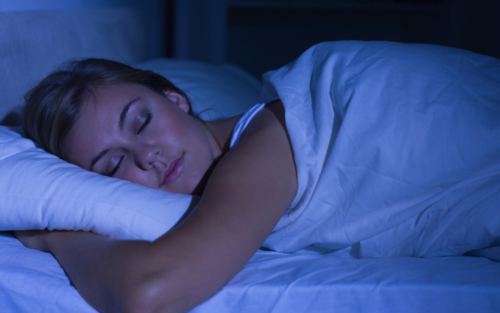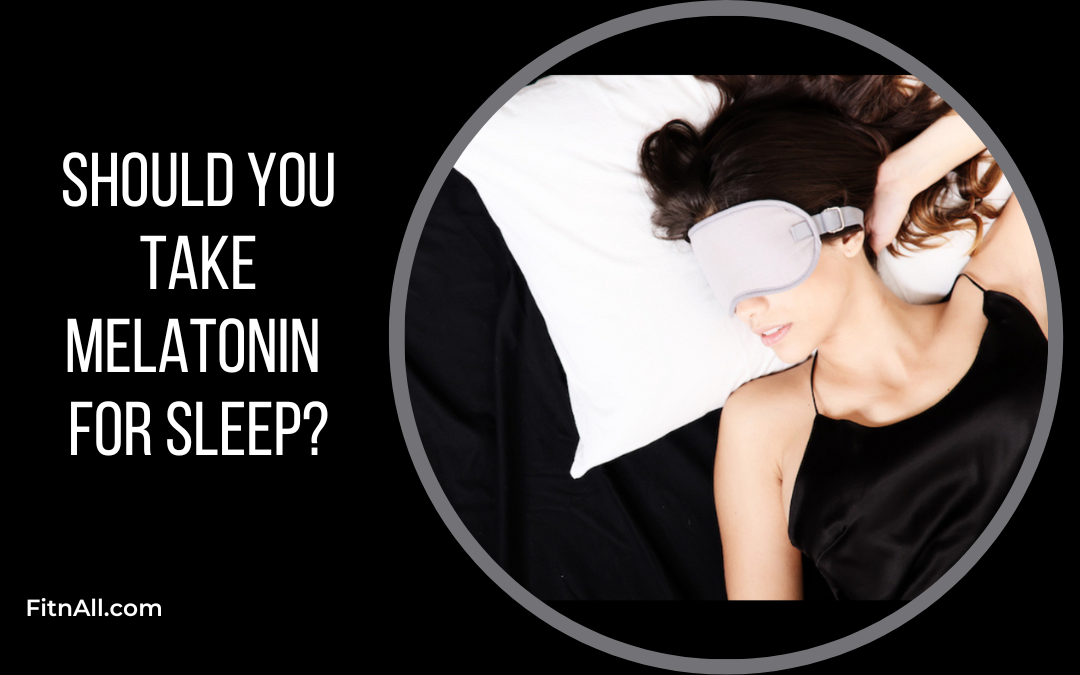Sleep deprivation can take a major toll on your health and quality of life. If you’ve struggled with sleep, chances are you’ve considered taking medication. Unfortunately, many sleep medications can cause dependency and unsavory side effects such as prolonged drowsiness. Because of this, many consumers look for natural alternatives, such as melatonin supplements. But how does melatonin help with sleep and should you be taking it? Let’s find out.
What is Melatonin?
Melatonin is a hormone produced by your brain that plays an essential role in sleep. You produce it naturally when exposed to darkness. The amount you produce will influence your quality of sleep however, melatonin itself will not directly result in sleep but rather will signal to your body that it is time to rest [1, 2, 3].
Being exposed to light at night can reduce your melatonin production. This is a natural response to the morning light, which signals your brain to slow down melatonin to help with wakefulness [4].
In addition to sleep, melatonin provides other important functions for the body including helping to regulate blood pressure, body temperature, blood sugar, weight, and even some other hormones.
The Circadian Rhythm
Melatonin is deeply connected to your circadian rhythm which influences your sleep-wake cycle. Your circadian rhythm is your body’s personal schedule for when to fall asleep and when to wake up, often referred to as your body’s natural clock.
Your circadian rhythm also influences your eating times. Continuous or occasional alterations in normal sleep patterns can disrupt your circadian rhythm, making it more difficult to produce melatonin at the appropriate times and get restful sleep.
Melatonin is a big influencer of your circadian rhythm and vice versa; however, this internal clock can be easily thrown off by things like artificial light, jet lag, staying up late, and irregular work schedules such as working the night shift. These things can also result in decreased melatonin production, leading to difficulty falling asleep and staying asleep. This is why is important to implement sleep hygiene protocols.
How Does Melatonin Impact Sleep?
Melatonin is produced by the pineal gland in our brain during nighttime to cue our body that it is time to get ready to go to sleep. These levels will begin to rise about 2 hours before bedtime. Exposure to certain things, such as artificial light, during this time, can impact melatonin production and cause it to be more challenging to fall asleep.
To avoid disrupting your melatonin production at night, avoid the use of blue lights from smartphones, tablets, computers, and tv. Keep lights low and avoid bright lights during this time. If you prefer to watch tv, trying to give yourself at least a 6 feet distance can help to prevent decreased melatonin production. Additionally, regular exposure to daylight in the morning can also promote healthy melatonin levels and keep your circadian rhythm on track [5].

Should You Take Melatonin Supplement for Sleep?
If you occasionally struggle with sleep, you may not need to take a melatonin supplement. However, if sleeping is regularly a challenge for you and you don’t want to take pharmaceuticals and deal with their side effects, melatonin is a safe and effective alternative.
A large volume of research has found melatonin to help improve sleep quality and quantity. Studies have shown melatonin supplementation can reduce the time it takes individuals to fall asleep while increasing sleep duration and quality. It may also be able to help counteract conditions such as jet lag [6, 7, 8, 9].
Is Melatonin Safe?
Melatonin is considered a safe and effective supplement for sleep. If you are new to taking melatonin, it’s recommended to begin with a low dose and gradually increase as needed. Taking higher doses of melatonin is not associated with falling asleep faster.
Melatonin comes in many different supplement forms, including pills, capsules, powders, and liquids. When choosing a supplement, be sure to choose one from a trusted brand that offers high-quality ingredients without additives and fillers, such as Naked Nutrition’s Naked Sleep.
This product provides 1mg of melatonin per serving along with other sleep-promoting ingredients such as l-theanine and BAGA (gamma-aminobutyric acid). Wait at least 5 hours before driving or operating heavy machinery when taking a melatonin supplement as it can cause drowsiness.
Always talk to your doctor or healthcare provider before taking a melatonin supplement, especially if you are taking medication for a chronic condition. Some medications may interact with the ingredients in certain supplements [10].
Are There Side Effects to Melatonin Supplements
Although it is a natural substance, taking melatonin can be associated with certain side effects. The most common side effects of taking melatonin include headache, dizziness, nausea, and drowsiness. Less common side effects might include vivid dreams, irritability, and urinary incontinence at night.
If you are looking to have a deep restful sleep, a safe alternative to sleep medication that does not result in dependency is melatonin. A large volume of research has found melatonin supplements to be effective in helping you fall and stay asleep.
To a Fitter Healthier You,
The Fitness Wellness Mentor



